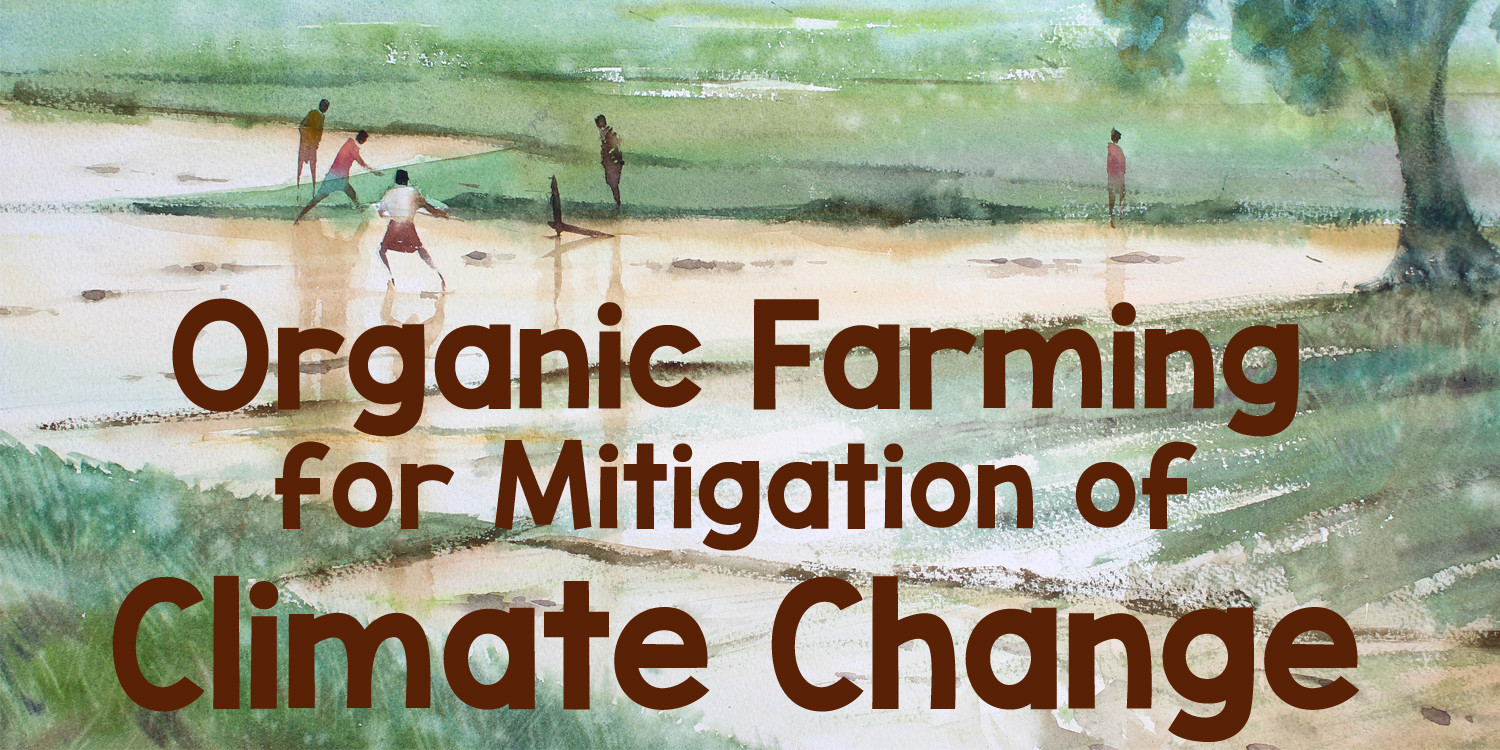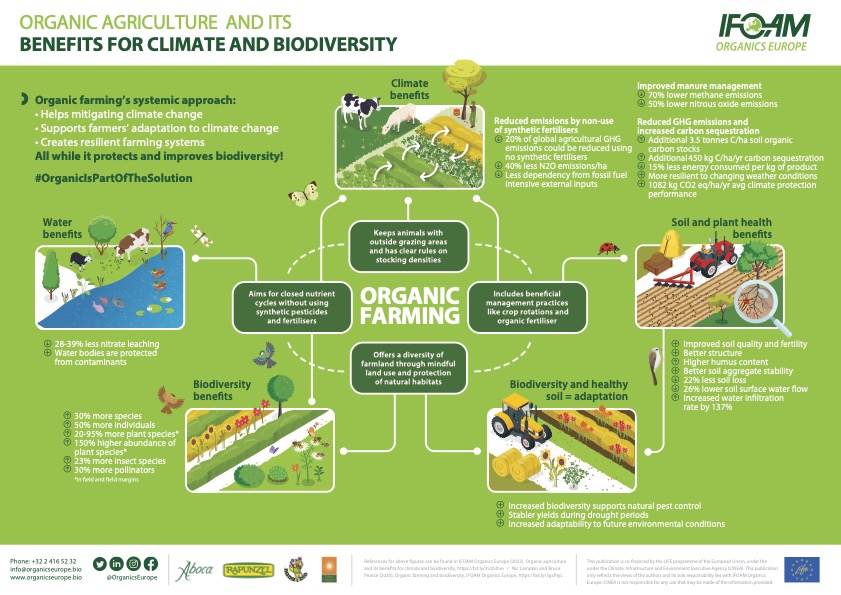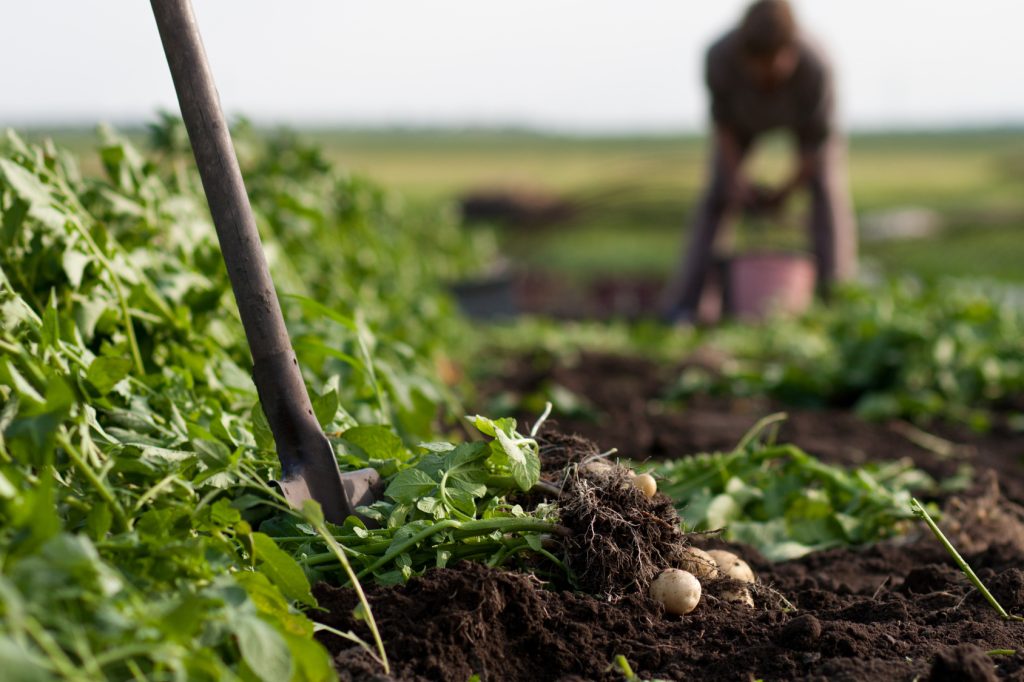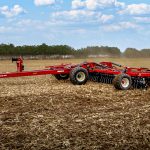Imagine a world where the food you eat not only nourishes your body but also helps protect the planet. As climate change becomes an ever-pressing concern, you might wonder how your everyday choices can make a difference.
What if one of the solutions lies right in your grocery basket? Organic farming is more than just a trend—it’s a powerful tool for climate adaptation. By choosing organic, you’re not just opting for a healthier lifestyle but also supporting practices that can withstand and mitigate the impacts of a changing climate.
Curious about how your food choices can help the planet? Let’s dive into the critical role organic farming plays in adapting to our climate’s evolving challenges. Keep reading to discover how you can be a part of this essential movement.

Sustainable Practices
Organic farming plays a crucial role in climate adaptation. It focuses on sustainable practices that enhance resilience. These practices help farmers manage resources efficiently. They also reduce environmental impact and support biodiversity.
Crop Rotation
Crop rotation prevents soil degradation. It involves changing the type of crops grown on the land. This practice improves soil fertility. It also minimizes pest and disease cycles. Farmers benefit from healthier crops and higher yields.
Composting
Composting converts organic waste into valuable fertilizer. It enriches the soil with nutrients. This reduces the need for chemical fertilizers. It also lowers greenhouse gas emissions. Composting creates a sustainable cycle for waste management.
Water Conservation
Efficient water use is vital in organic farming. Techniques like drip irrigation reduce water wastage. Mulching helps retain soil moisture. These methods ensure crops thrive even in dry conditions. Water conservation supports climate adaptation.
Agroforestry
Agroforestry combines trees with crops or livestock. It boosts biodiversity and soil health. Trees provide shade and wind protection. This reduces erosion and improves microclimates. Agroforestry contributes to sustainable farming systems.
Natural Pest Control
Organic farming uses natural pest control methods. Beneficial insects and plants manage pests. This reduces reliance on chemical pesticides. It promotes a balanced ecosystem. Natural pest control keeps crops healthy.

Biodiversity Benefits
Organic farming boosts biodiversity, aiding climate adaptation. It fosters healthy soil, reduces erosion, and supports diverse ecosystems. This farming approach enhances resilience against climate impacts, promoting sustainable agriculture.
Organic farming plays a crucial role in climate adaptation by enhancing biodiversity. When you look at a farm that practices organic methods, you’re likely to see a diverse range of plants, insects, and animals coexisting. This rich biodiversity is not just a pretty picture; it offers tangible benefits in adapting to climate change. As someone who has visited organic farms, I’ve seen firsthand how this diversity can create a self-sustaining ecosystem that is more resilient to climate challenges.What Is Biodiversity In Organic Farming?
Biodiversity in organic farming means having a variety of species on the farm. It includes different types of plants, insects, and animals. This diversity helps to balance the ecosystem naturally. You might wonder why this matters. The answer is simple: diverse ecosystems are more stable and can better withstand changes and stressors, such as extreme weather events.Natural Pest Control
Organic farming supports biodiversity, which helps in natural pest control. When you have a variety of plants and insects, they work together to manage pests without chemicals. Ladybugs, for example, love to feast on aphids. When you see a ladybug on your organic farm, it’s not just cute; it’s a sign of natural pest management at work. This reduces the need for harmful pesticides, benefiting both the environment and your health.Soil Health And Fertility
Healthy soil is the foundation of organic farming. Biodiverse farms enhance soil health through varied root systems and organic matter. This diversity in plant types contributes to nutrient-rich soil. Imagine walking on a farm where the soil feels alive and robust. That’s the power of biodiversity enriching the earth beneath your feet. It helps retain moisture and improve fertility, crucial for adapting to changing climates.Resilience Against Climate Change
Biodiverse farms are better equipped to handle climate change. They adapt to shifts in temperature and rainfall patterns more effectively. The variety of species ensures that some will thrive even when conditions change. Think about your garden at home. If one plant doesn’t do well due to weather changes, others might still flourish. The same principle applies to organic farms, making them more resilient to the unpredictable nature of climate change.Supporting Local Wildlife
Organic farms often serve as a refuge for local wildlife. They provide habitats and food sources for birds, bees, and other creatures. This not only supports biodiversity but also promotes ecological balance. Have you ever noticed how birds flock to organic farms? They find safety and sustenance there, contributing to a thriving ecosystem. Supporting local wildlife is an essential aspect of climate adaptation, ensuring that ecosystems remain intact and functional.By encouraging biodiversity, organic farming creates a resilient environment that adapts to climate changes. This isn’t just a theory; it’s a practical approach to farming that you can witness in action. How can you incorporate these practices into your life or community? The answers might surprise you.
Soil Health And Carbon Sequestration
Organic farming plays a crucial role in climate adaptation. It focuses on improving soil health. Healthy soil is vital for sustainable agriculture. It supports plant growth and biodiversity. Importantly, it helps in carbon sequestration. This process stores carbon in the soil, reducing greenhouse gases. Organic farming practices enhance this ability.
Carbon sequestration mitigates climate change effects. It maintains a balance in our ecosystem. Soil health and carbon storage are interconnected. Both are essential for resilient farming systems.
Soil Enrichment Through Organic Practices
Organic farming enriches soil naturally. Farmers use compost and green manure. These materials add nutrients to the soil. This improves its structure and fertility. Healthy soil retains more water and nutrients. It supports diverse microorganisms. These organisms break down organic matter. This process releases nutrients for plants. It enhances soil’s ability to store carbon.
Cover Crops And Carbon Capture
Cover crops play a vital role in organic farming. They protect soil from erosion. Cover crops like clover and rye are popular. They grow during off-seasons. These plants capture carbon from the atmosphere. Then, they store it in the soil. This reduces carbon dioxide levels.
Cover crops also suppress weeds. They improve soil structure. This makes the soil more resilient to climate changes.
Reduced Tillage And Carbon Retention
Reduced tillage is a key practice in organic farming. It involves minimal soil disturbance. This helps retain soil carbon. Tillage can release carbon into the atmosphere. By reducing tillage, farmers keep more carbon in the soil. This practice also conserves soil moisture. It prevents erosion and maintains soil health.
Role Of Composting In Carbon Storage
Composting is a sustainable practice in organic farming. It involves recycling organic waste. This creates nutrient-rich compost. Compost improves soil fertility. It enhances its carbon storage capacity. Composting reduces methane emissions from landfills. It contributes to a healthier environment.
Farmers use compost to enrich their fields. This supports plant growth and soil health. It is a vital part of carbon sequestration.

Conclusion
Organic farming plays a crucial role in climate adaptation. It reduces carbon footprints. It improves soil health. This farming method supports biodiversity. Farmers can rely on natural pest control. Water conservation also improves. These practices make farming more sustainable. Communities benefit from healthier crops.
Organic methods help in adapting to changing climates. They offer a path to resilient agriculture. Adopting organic farming supports a greener future. It empowers farmers worldwide. Sustainable agriculture is key to climate resilience. By choosing organic, we help the planet.
Together, we can make a difference.



